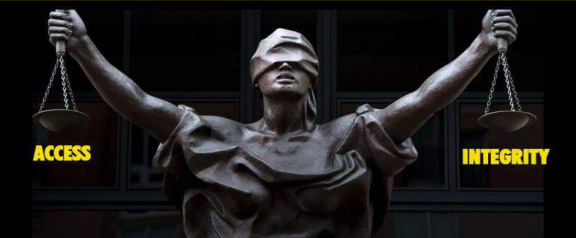LIBERTARIAN PARTY VS STEVE SIMON APPEAL HEARD TODAY IN 8TH CIRCUIT COURT
Minneapolis, Minnesota (June 16, 2021) – The Libertarian Party of Minnesota issues this release in response to the conclusion of today’s oral arguments in the appeal case of LPMN vs Steve Simon. The tele-conference hearing was held this morning in the 8th Circuit Court of Appeals in Division II by Judges Raymond Gruender, Morris Arnold, and David Stras. An audio link to the arguments in case 20-2244 is available: https://www.ca8.uscourts.gov/case-number-0
“The LPMN has been fighting for many years on many fronts to knock down barriers to entry into our elections processes,” says State Chair Chris Holbrook, “for all people of all types from all parties. We need more voices running for office, period.”
The lawsuit against Steve Simon asserts violations of the First and Fourteenth Amendments, citing limits on free speech as well as unequal protection in law. At the argument’s core is a challenge that the signer’s oath on the candidate nominating petition serves no compelling state interest and is only present to dissuades signers. It says you do not intend to vote in the primary and carries the possibility of statutory felony perjury, punishable by fines or imprisonment.
“Our Ballot Access Inclusion Bill to fix these statutes has been blocked by Republican committees at the Legislature from receiving a vote,”continues Holbrook. “Our legal challenges against this exclusion and threat in statute by political party has also come up short to date, losing in US District Court last year to the Democrats at the Secretary of State’s office. While we are encouraged by the tone of today’s Appeals court hearing, we expect a further appeal by one side or the other once the ruling is announced.”
Appellant Attorney Erick Kaardal stated, “We agree that the state legislature could have enacted a law where either the minor political party candidate nomination petition signer forfeits the right to vote in the primary or doesn’t. The lower court’s interpretation of Minnesota’s statutory oath is that a signer must have a present intention to not vote in the primary but can later change their mind and vote. The statutory oath does not say that you can change your mind later and vote, creating an unconstitutional burden on minor political parties to explain the governments mess to every potential signer”.
Intertwined with the petitioning statutes, referenced in the case, is the early general election declaration date required for minor parties. They must submit these final petitions in June, starting and stopping signature collection during the exact 14 day window wherein the state accepts filings from major party contenders to run in the August primary. The primary is when the major party general election candidates become known, creating a difference of ten weeks.
Background information referenced is available at: https://www.lpmn.org/ballot-inclusiveness/

